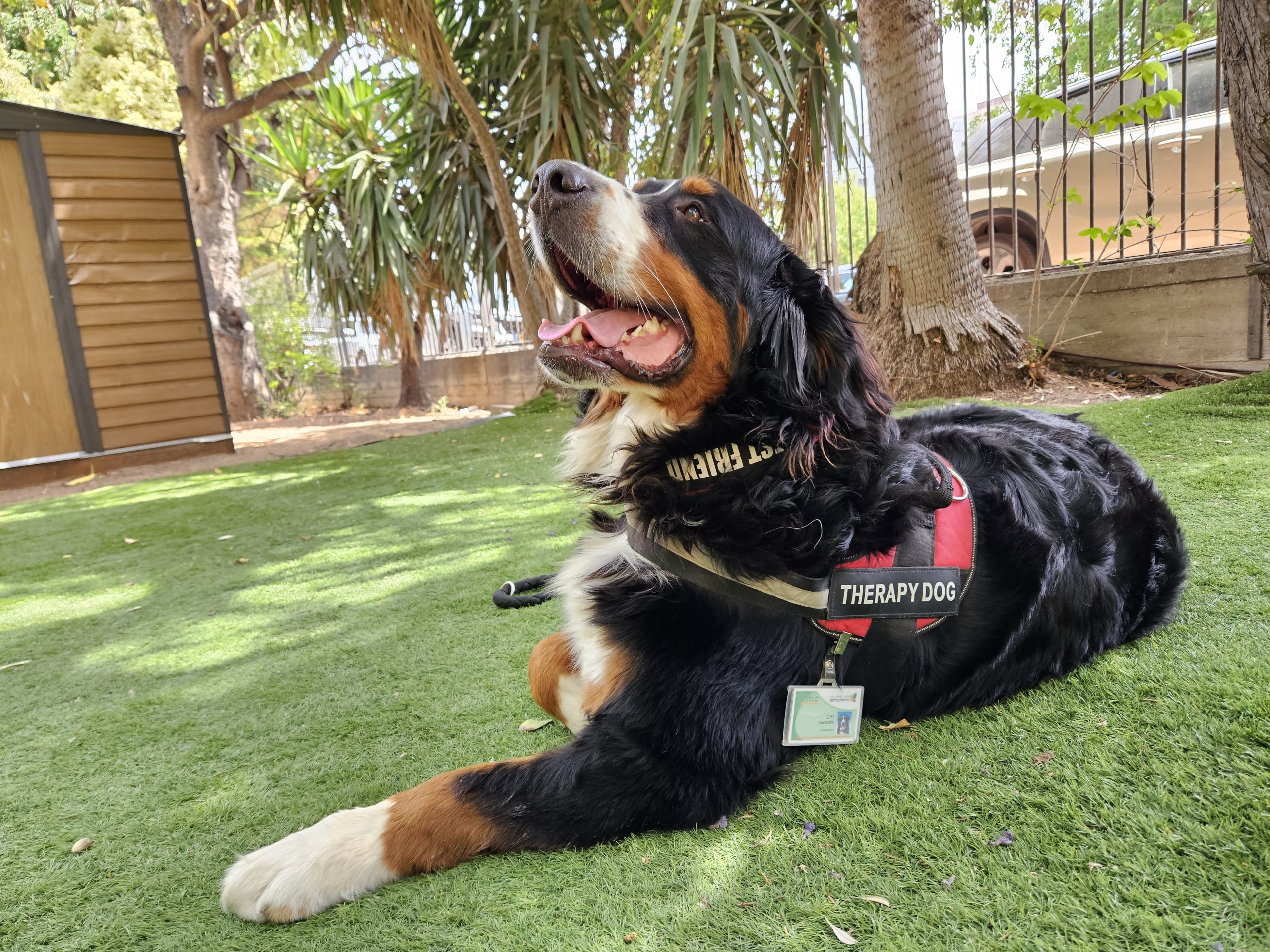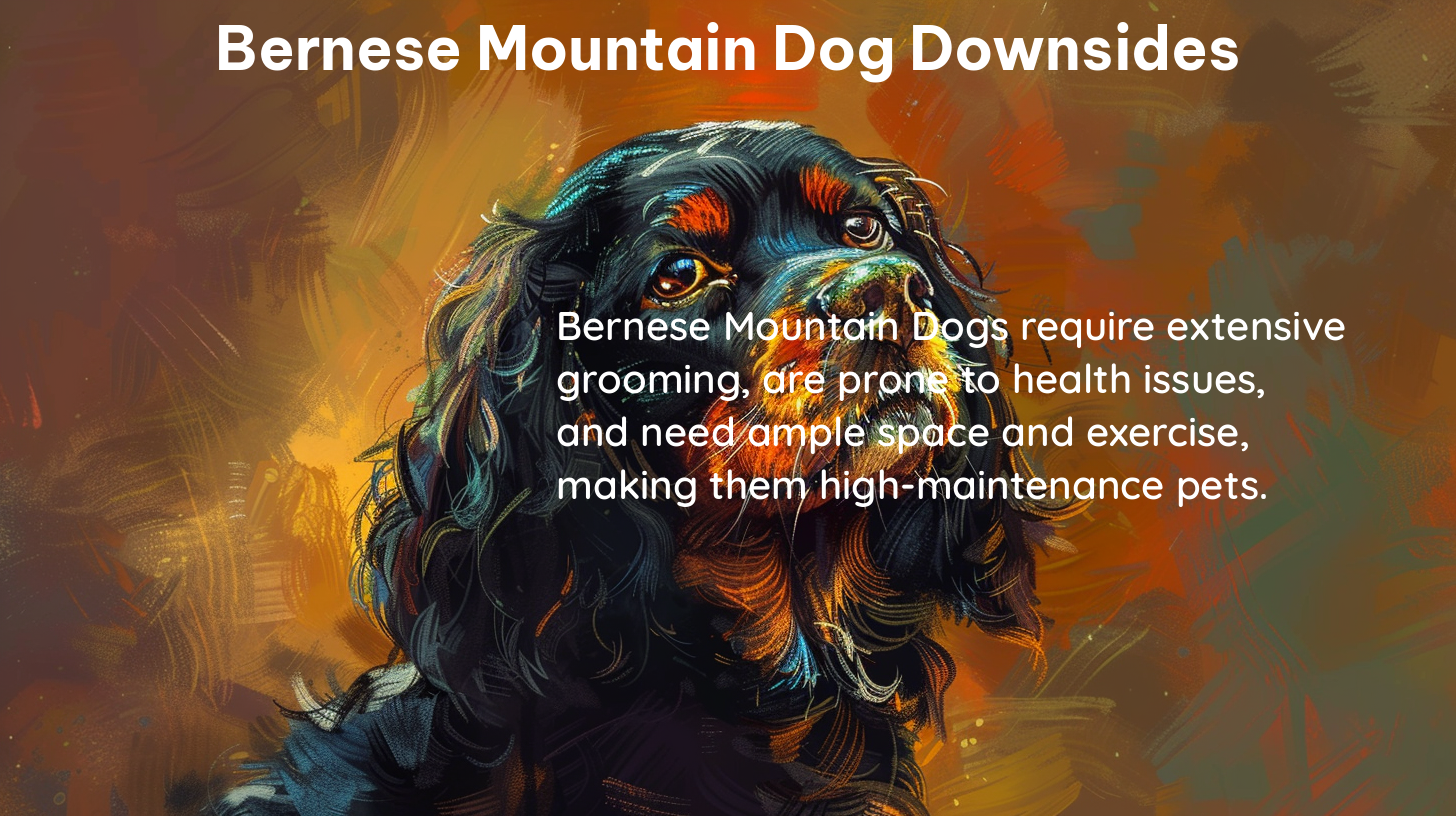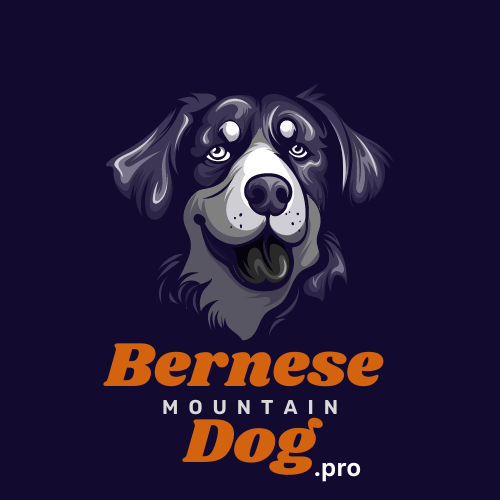Bernese Mountain Dogs are beloved for their gentle, affectionate nature, making them popular family pets. However, like any breed, they come with their own set of downsides that potential owners should be aware of before bringing one into their home.
Health Issues

Short Lifespan
One of the most significant downsides of owning a Bernese Mountain Dog is their relatively short lifespan of 6-8 years. This can be a significant drawback for many owners who are looking for a long-term companion.
Hip and Elbow Dysplasia
Bernese Mountain Dogs are prone to developing hip and elbow dysplasia, a condition where the joints do not develop properly. This can lead to mobility issues, arthritis, and pain for the dog, requiring ongoing medical treatment and management.
Cancer
Bernese Mountain Dogs are at a higher risk of developing various types of cancer, particularly as they age. This can be a significant health concern and can impact the dog’s quality of life.
Heart Disease
Bernese Mountain Dogs can also be susceptible to heart disease, which can further complicate their health and well-being.
Eye Problems
Another common health issue in Bernese Mountain Dogs is eye problems, such as progressive retinal atrophy (PRA), which can lead to vision loss.
Temperament Faults

Excessive Shyness
Some Bernese Mountain Dogs can be excessively shy, which can manifest as timidity or fearfulness. This can make them less confident in social situations and may require additional socialization and training.
Separation Anxiety
Bernese Mountain Dogs can suffer from separation anxiety, leading to destructive behavior when left alone for extended periods. This can be a challenging issue to manage and may require specialized training or medication.
Strong Temperament in Males
Male Bernese Mountain Dogs can sometimes exhibit a strong, willful temperament, requiring consistent training and socialization to ensure they are well-behaved and obedient.
Practical Considerations
Shedding
Bernese Mountain Dogs have a thick double coat that sheds heavily, requiring regular grooming and cleaning to manage the amount of hair in the home.
Size and Space
As large dogs, Bernese Mountain Dogs require ample space both indoors and outdoors, making them less suitable for small living spaces or apartments.
Exercise Needs
While Bernese Mountain Dogs don’t need excessive exercise, they do require regular physical activity and mental stimulation to prevent boredom and destructive behavior.
Cost
Owning a Bernese Mountain Dog can be expensive, not only in the initial purchase price but also in ongoing medical care, grooming, and other expenses associated with their size and health needs.
Training and Socialization
Socialization
Bernese Mountain Dogs need extensive socialization from an early age to prevent shyness and ensure they are comfortable in various environments.
Training
While Bernese Mountain Dogs are intelligent and trainable, they can be stubborn at times, requiring patient and consistent training to ensure they are well-behaved.
In conclusion, while Bernese Mountain Dogs make wonderful companions, it is essential to carefully consider these downsides and ensure that you can provide the necessary care, attention, and resources to support their needs. By understanding the potential challenges, you can make an informed decision and provide the best possible life for your Bernese Mountain Dog.
References:
1. https://figopetinsurance.com/blog/bernese-mountain-dog-breed-guide
2. https://www.petinsurancereview.com/blog/bernese-mountain-dog-pros-and-cons
3. https://www.kevintheberner.com/blog/6-reasons-not-to-get-a-bernese-mountain-dog
4. https://www.yourpurebredpuppy.com/reviews/bernesemountaindogs.html

Sarah Johnson
Sarah Johnson is a devoted Bernese Mountain Dog enthusiast and regular contributor to Bernese Mountain Dog Pro. With over a decade of experience in raising and training Berners, Sarah brings practical knowledge and passion to her writing. Sarah lives in Colorado with her two Berners, Max and Bella.